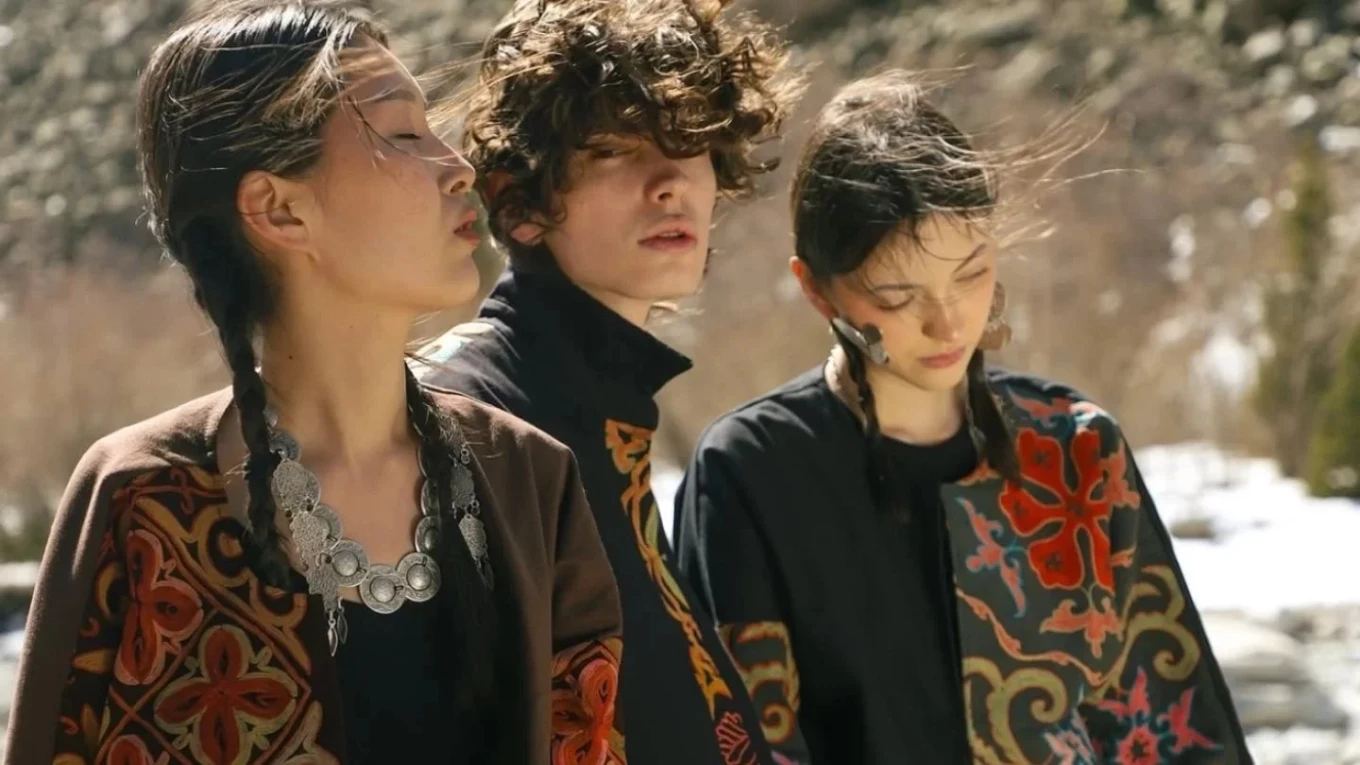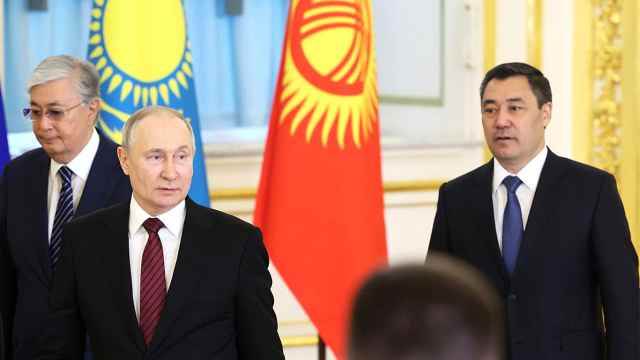Kyrgyzstan has called for respect for its "historical and cultural heritage" after a Russian clothing brand used traditional Kyrgyz designs and claimed copyright over them, prompting accusations of "cultural appropriation."
The Central Asian country is closely allied with Moscow but has taken steps to reinforce its national identity in recent years after many decades of dependence on former ruler Russia.
"Recently, there has been an alarming trend related to the commercial use of national patterns and symbols, which are an integral part of the historical and cultural heritage of Kyrgyzstan," its culture ministry said on Facebook Wednesday.
"The culture ministry calls on all organizations, entrepreneurs and individual citizens to respect the historical and cultural heritage of the Kyrgyz Republic."
The furor began earlier this month after social media users accused Russian fashion label Yaka, founded in 2023, of ripping off traditional Kyrgyz patterns and including a legal warning against "copying" its designs on its website.
Yaka sells a range of clothes and accessories featuring colorful Kyrgyz patterns, describing them as "modern ethno-chic."
It also sells "shyrdaks," traditional felt rugs native to Kyrgyzstan that are sometimes used as a dowry at weddings and have been included in UNESCO's list of intangible cultural heritage.
'Cultural appropriation'
Some social media users accused the brand of "cultural appropriation" — when a tradition is taken from another culture and used in a way that was not intended.
Kyrgyzstan has a relatively freer media and looser controls on social networks than its authoritarian Central Asian neighbors, but open anger against Russia is rare.
Yaka's founder Anna Obydenova reacted to the criticism by calling on Kyrgyz people to "learn Russian better" in an Instagram video.
She later deleted the video and apologized.
In an Instagram post Tuesday, she denied accusations of disrespect towards Kyrgyz culture, saying she had worked with local craftswomen.
"I never said I came up with these patterns, nor did I call myself a designer or author of the motifs," she said.
"I am simply a person who saw incredible beauty and wanted to share it with the world."
Russian remains an official language in Kyrgyzstan, with a segment of the population expressing pro-Russian attitudes.
But others, especially among the younger generation, have turned away from Moscow, partly due to the invasion of Ukraine and Russian authorities' often harsh treatment of Kyrgyz migrants.
A Message from The Moscow Times:
Dear readers,
We are facing unprecedented challenges. Russia's Prosecutor General's Office has designated The Moscow Times as an "undesirable" organization, criminalizing our work and putting our staff at risk of prosecution. This follows our earlier unjust labeling as a "foreign agent."
These actions are direct attempts to silence independent journalism in Russia. The authorities claim our work "discredits the decisions of the Russian leadership." We see things differently: we strive to provide accurate, unbiased reporting on Russia.
We, the journalists of The Moscow Times, refuse to be silenced. But to continue our work, we need your help.
Your support, no matter how small, makes a world of difference. If you can, please support us monthly starting from just $2. It's quick to set up, and every contribution makes a significant impact.
By supporting The Moscow Times, you're defending open, independent journalism in the face of repression. Thank you for standing with us.
Remind me later.






